Trend-Enabled Recommender System with Diversity Enhancer for Crop Recommendation
Trend-Enabled Recommender System with Diversity Enhancer for Crop Recommendation
Iulia Baraian, Rudolf Erdei, Rares Tamaian, Daniela Delinschi, Emil Pasca, Oliviu Matei
Abstract. Achieving optimal agricultural yields and promoting sustainable farming relies on accurate crop recommendations. However, the applicability of many current systems is limited by their considerable computational requirements and dependence on comprehensive datasets, especially in resource-limited contexts. This paper presents HOLISTIQ RS, a novel crop recommendation system explicitly designed for operation on low-specification hardware and in data-scarce regions. HOLISTIQ RS combines collaborative filtering with a Markov model to predict appropriate crop choices, drawing upon user profiles, regional agricultural data, and past crop performance. Results indicate that HOLISTIQ RS provides a significant increase in recommendation accuracy, achieving a MAP@5 of 0.31 and nDCG@5 of 0.41, outperforming standard collaborative filtering methods (the KNN achieved MAP@5 of 0.28 and nDCG@5 of 0.38, and the ANN achieved MAP@5 of 0.25 and nDCG@5 of 0.35). Significantly, the system also demonstrates enhanced recommendation diversity, achieving an Item Variety (IV@5) of 23%, which is absent in deterministic baselines. Significantly, the system is engineered for reduced energy consumption and can be deployed on low-cost hardware. This provides a feasible and adaptable method for encouraging informed decision-making and promoting sustainable agricultural practices in areas where resources are constrained, with an emphasis on lower energy usage.
Keywords: recommender system; markov process; system architecture; recommendation diversity; cold start problem; trend forecasting
Guide in Designing an Asynchronous Performance-Centric Framework for Heterogeneous Microservices in Time-Critical Cybersecurity Applications. The BIECO Use Case
The generalized traveling salesman problem (GTSP) is an extension of the classical traveling salesman
problem (TSP), and it is among the most researched combinatorial optimization problems due to its theoretical properties, complexity aspects, and real-life applications in various areas: location-routing problems, material flow design problem, distribution of medical supplies, urban waste collection management, airport selection and routing the courier airplanes, image retrieval and ranking, digital garment manufacturing, etc.
Evaluation of Feature Selection Methods in Estimation of Precipitation Based on Deep Learning Artificial Neural Networks
Precipitation is the most important element of the water cycle and an indispensable element of water resources management. This paper aims to model the monthly precipitation in 8 precipitation observation stations. The effects and role of different feature weights pre-processing methods (Weight by deviation, Weight by PCA, Weight by correlation, and Weight by Support Vector Machine) on artificial intelligence modeling were investigated.
A Comparison of different crossover operators in genetic algorithms for clusters shortest-path tree problem
The clustered shortest-path tree (CluSPT) problem is an extension of the classical shortest path problem, given a graph with the nodes partitioned into several mutually exclusive and collectively exhaustive clusters looks for a shortest-path spanning tree from a predefined source node to all the other nodes of the graph, with the property that every cluster should generate a connected subgraph.
A comprehensive survey on the generalized traveling salesman problem
The generalized traveling salesman problem (GTSP) is an extension of the classical traveling salesman
problem (TSP), and it is among the most researched combinatorial optimization problems due to its theoretical properties, complexity aspects, and real-life applications in various areas: location-routing problems, material flow design problem, distribution of medical supplies, urban waste collection management, airport selection and routing the courier airplanes, image retrieval and ranking, digital garment manufacturing, etc.
A hybrid based genetic algorithm for solving the clustered generalized traveling salesman problem
We study the clustered generalized traveling salesman problem (CGTSP), which is an extension of the generalized traveling salesman problem (GTSP), which in turn generalizes the well-known traveling salesman problem (TSP).
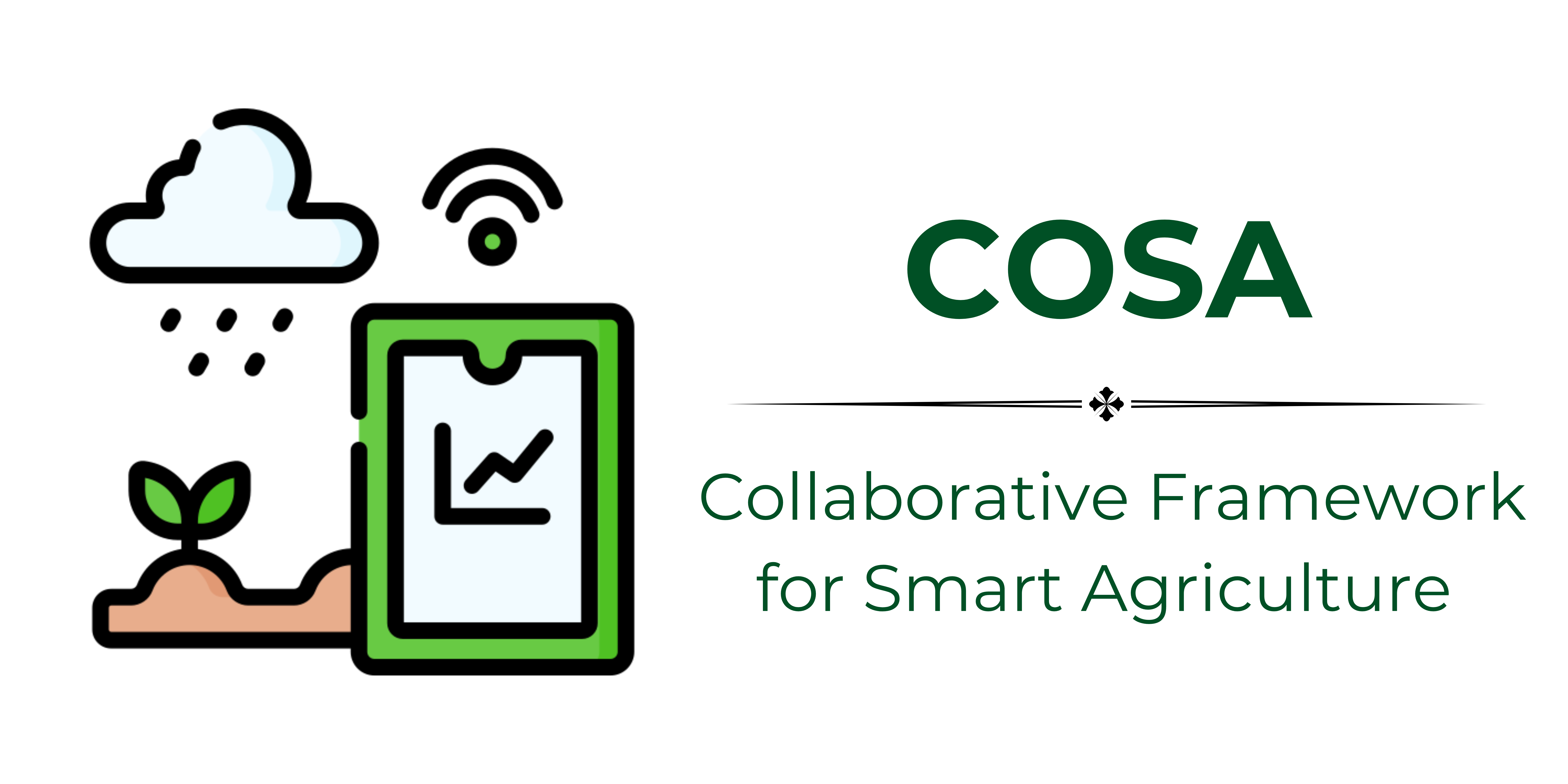
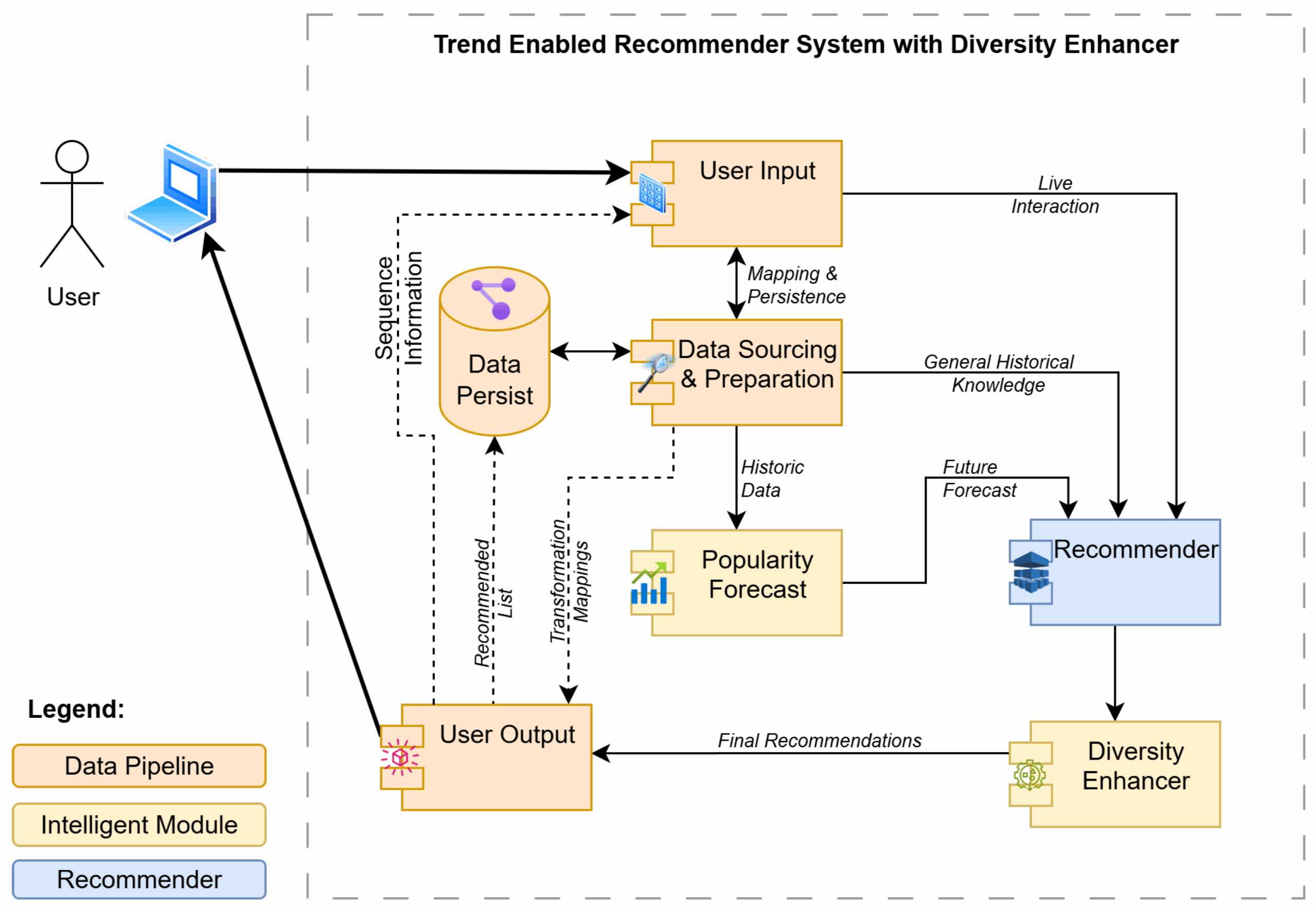
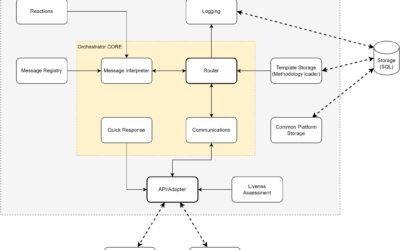
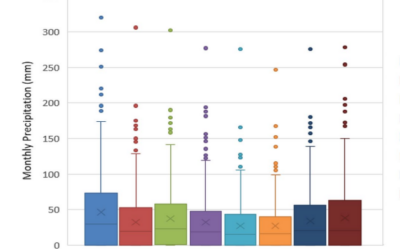
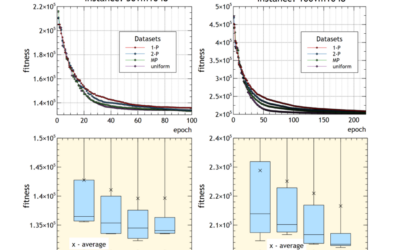
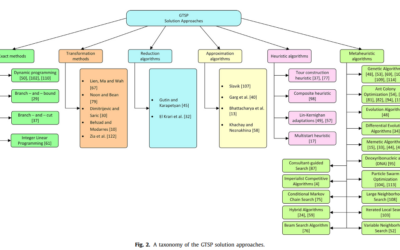

0 Comments